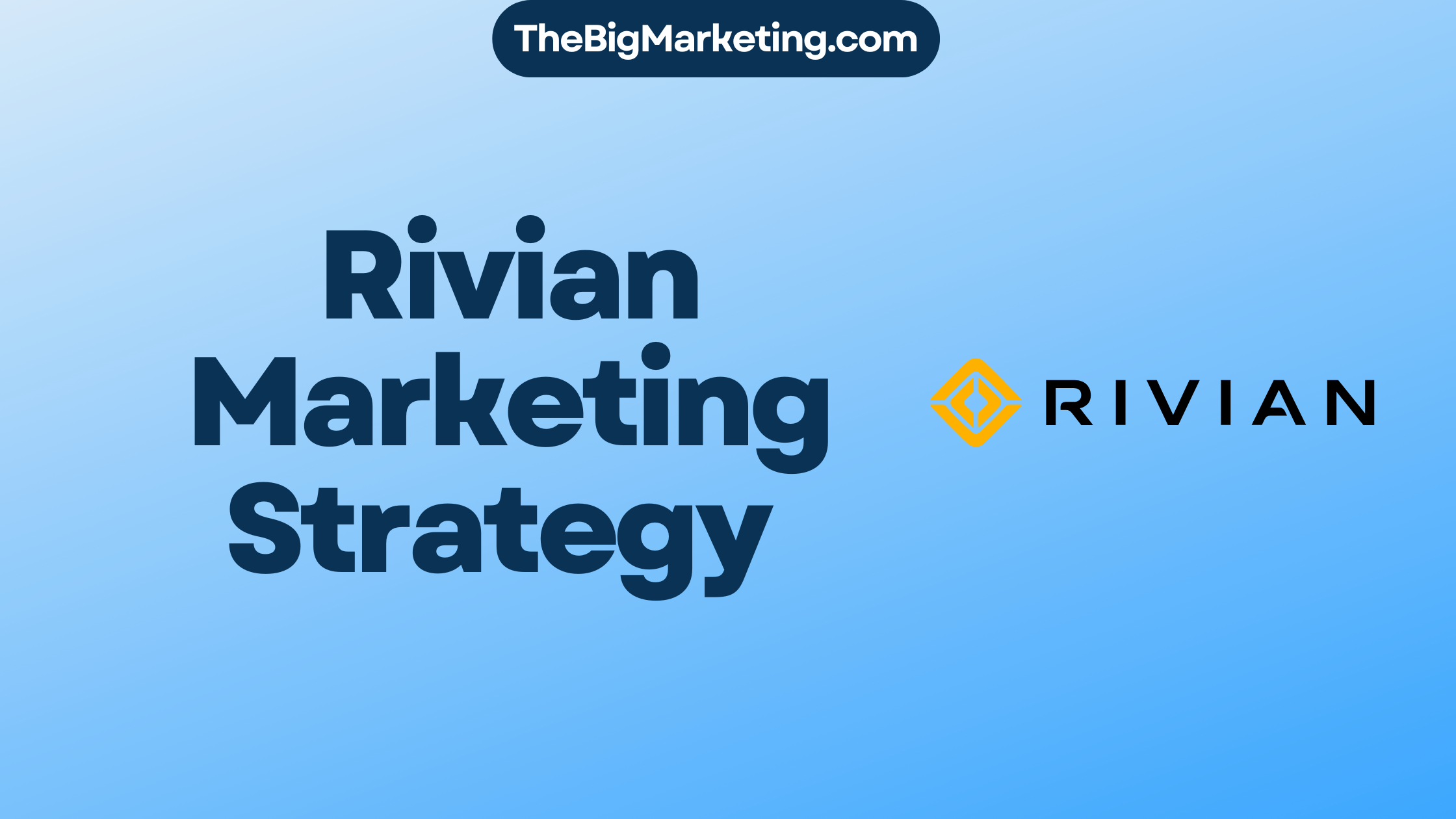Brand differentiation plays a vital role in building customer loyalty in today’s highly competitive business landscape. Crafting a strong and distinct brand identity helps businesses stand out and forge deep connections with customers. This leads to higher customer retention rates, increased referrals, and enhanced customer lifetime value. Brand building is crucial for long-term success and sustainable growth.
Key Takeaways:
- 77% of consumers prioritize brand differentiation when making purchasing decisions.
- 82% of customers are more likely to remain loyal to brands that provide unique value propositions.
- Effectively differentiated brands can charge up to 20% more for their products.
- 68% of consumers perceive brands with strong differentiation as more trustworthy and innovative.
- 91% of customers prefer engaging with brands that offer personalized experiences.
In a study conducted by Interbrand, the world’s 100 most valuable brands experienced an average increase in total worth of 5.9% in 2020, despite the challenges of the global COVID-19 pandemic. This demonstrates the significant impact of strong brands on revenue growth and market success.
Effective differentiation through brand building not only increases market share but also fosters customer loyalty. Repeat business from loyal customers positively impacts a company’s bottom line. Brands like Apple have exemplified successful differentiation through their innovative design, positioning themselves as industry leaders and cultivating passionate brand advocates.
Investing in brand building is a strategic decision that yields substantial returns and propels businesses toward long-term success, regardless of external circumstances. In today’s ever-changing landscape, nearly 70% of consumers find it harder than ever for retailers to maintain their loyalty. By establishing emotional connections with customers, businesses can create lasting brand loyalty. Customers with an emotional connection to a brand have a 306% higher lifetime value and are more likely to recommend the brand to others.
To further enhance customer loyalty, brands can offer premium loyalty programs with added benefits and experiences. For example, Lululemon’s premium loyalty program includes free products and curated events, creating deeper emotional connections with customers. Philanthropic incentives, such as DSW’s Give A Pair benefit, also play a crucial role in building loyalty by resonating with customers’ values. Lifetime memberships, like the one offered by REI Co-op loyalty program, provide unique and long-lasting value propositions.
Building customer loyalty through brand differentiation is a strategic approach that allows businesses to thrive in competitive markets. By establishing a distinctive brand identity and delivering exceptional value to customers, companies can enhance customer retention, increase revenue growth, and drive long-term success.
The Importance of Brand Differentiation in a Competitive Market
In today’s competitive market landscape, brand differentiation plays a crucial role in capturing consumer attention and establishing a strong market position. With countless companies vying for consumer loyalty, businesses must find ways to stand out and create a competitive advantage.
Brand differentiation is the process of creating a unique and compelling identity that sets a brand apart from its competitors. It involves highlighting the distinct qualities, features, and values that make a brand memorable, highly relevant, and desirable to its target audience. By leveraging brand differentiation, businesses can attract customers, command premium prices, and cultivate a sense of exclusivity.
One of the key benefits of brand differentiation is its ability to create a competitive advantage. When a brand differentiates itself effectively, it positions itself as the preferred choice among consumers, giving it a distinct edge over competitors. This advantage can lead to increased market share, customer loyalty, and higher profitability.
Moreover, brand differentiation helps establish a unique selling proposition, or USP, which is the unique value that a brand offers to its customers. Whether it’s through new technology, innovative features, or a unique look and feel, a strong brand differentiation strategy can provide a compelling reason for consumers to choose a particular brand over others.
Furthermore, differentiation helps build trust and loyalty among consumers. By identifying a problem that consumers have and offering a solution that is difficult to find elsewhere, brands can address consumer needs and establish credibility. Additionally, building expertise, knowledge, and providing an exceptional customer experience can contribute to the brand’s differentiation and draw consumers to the brand.
Consistency, perseverance, and connection with the target market’s culture are also essential in brand differentiation. Brands that consistently deliver on their promises and connect with their target market’s values and preferences can become iconic and the go-to choice for consumers.
Research has shown that successful companies focus on creating a distinctive enterprise that consistently develops compelling products, services, and brands. Understanding customer needs is crucial in developing effective differentiation strategies that align with market demands. High-growth firms are almost three times more likely to have a strong differentiator, highlighting the importance of differentiation in driving growth.
Differentiation can take various forms, and in the professional services industry, 21 distinct types of differentiators have been identified. Companies like RS&H, a transportation specialist with a storied history of success in transportation infrastructure, LBMC Information Security, specializing in healthcare security, and Summit Executive Resources, which disrupted the traditional executive search model, demonstrate unique differentiation strategies that give them a competitive advantage.
Ultimately, brand differentiation is crucial for businesses to gain a competitive advantage, increase market share, and build customer loyalty. By differentiating their products, services, or brand identity, businesses can carve out a distinct position in the market and attract customers who are willing to pay more for a unique and immersive experience. In a competitive market, effective brand differentiation can make all the difference between success and obscurity.
Building Customer Loyalty through Brand Differentiation
Brand differentiation is a powerful tool for building customer loyalty and establishing long-term relationships with consumers. When a brand successfully differentiates itself from competitors, it creates a unique position in the market that resonates with its target audience.
By developing a deep emotional connection with customers, brands can go beyond simple transactions and create a sense of loyalty that encourages repeat business and positive word-of-mouth recommendations. When customers feel a strong affinity towards a brand, they become brand advocates, actively promoting the brand to others and contributing to its success.
Research shows that an increase in customer loyalty by just 7% can lead to a staggering 85% increase in customer lifetime value. This demonstrates the significant impact that building customer loyalty can have on a brand’s bottom line.
One of the key benefits of brand differentiation is that it sets a brand apart as more innovative, trustworthy, and authoritative. Differentiated brands are perceived as providing superior products or services, which allows them to command higher profit margins.
In order to effectively differentiate a brand, companies must conduct comprehensive market research to gain insights into customer preferences, needs, and pain points. This research is crucial for identifying opportunities to stand out from the competition and create a unique value proposition.
| Benefits of Brand Differentiation | Strategies for Brand Differentiation |
|---|---|
|
|
Creating an emotional connection with customers is a key aspect of brand differentiation. By understanding their needs and desires, brands can tailor their messaging and experiences to resonate with their target audience on a deeper level.
Engaging with customers through personalized experiences and building authentic relationships fosters trust and loyalty. When customers feel seen, understood, and valued by a brand, they are more likely to remain loyal and become advocates for the brand.
Furthermore, engaged communities that provide brands with honest feedback are invaluable for driving brand development and innovation. By actively listening to their customers and incorporating their input, brands can continually improve and meet the evolving needs of their audience.
Overall, building customer loyalty through brand differentiation is a crucial strategy for success in today’s competitive market. By creating a unique identity, fostering emotional connections, and cultivating a base of brand advocates, businesses can secure their position and thrive amidst fierce competition.
Increasing Revenue Growth with Brand Differentiation
One of the ultimate objectives of brand differentiation is to fuel revenue growth. A well-established brand with a strong reputation has the ability to command premium prices for its products or services. Customers perceive such brands as having higher value and are willing to pay more. This not only leads to increased profit margins but also attracts a larger customer base. Strong brand differentiation contributes to revenue growth by expanding the brand’s sphere of influence and driving increased sales.
Understanding the Link between Brand Differentiation and Revenue Growth
Brand differentiation is a strategic approach that sets a business apart from its competitors. By creating a compelling and unique brand identity, businesses can increase their market share and attract more customers. This, in turn, leads to revenue growth, as the brand’s products or services become more desirable and sought after. When customers perceive a brand as being differentiated from its competitors, they are more likely to choose it over other options, even if it means paying a higher price.
Let’s consider the example of Starbucks and Ryanair, two companies that have successfully used varying pricing strategies to differentiate their brands. Starbucks is known for its premium pricing strategy, positioning itself as a provider of high-quality coffee and a unique customer experience. On the other hand, Ryanair has implemented a low-cost pricing approach, targeting budget-conscious travelers. Both brands have achieved revenue growth through brand differentiation, catering to different market segments and appealing to customers with diverse preferences and needs.
Benefits of Brand Differentiation for Revenue Growth
Implementing a strong brand differentiation strategy can result in several benefits for businesses, including:
- Increased Profit Margins: When a brand is successfully differentiated, it can command higher prices, leading to improved profit margins.
- Larger Customer Base: By standing out from competitors, a differentiated brand attracts a larger customer base, expanding its market reach and driving revenue growth.
- Competitive Advantage: Brand differentiation enables businesses to outperform larger competitors by offering unique products or services that meet specific customer needs.
- Better Brand Reputation: A differentiated brand builds a strong reputation, gaining customer trust and loyalty, which contributes to long-term revenue growth.
It is important for businesses to strategically develop a brand differentiation strategy that aligns with their brand’s personality, values, and business goals. This involves identifying unique selling points, understanding customer needs, and creating a brand identity that resonates with the target market. By investing in brand differentiation, businesses can drive revenue growth, increase profit margins, and build a strong brand reputation that sets them apart in a competitive market.
The Power of Brand Perception
Brand perception, a subjective concept with various definitions, plays a pivotal role in shaping consumer trust, loyalty, and purchasing decisions. It encompasses the impressions, beliefs, and emotions that consumers associate with a brand. In today’s interconnected world, where consumer opinions are easily shared and instantly disseminated, brand perception is more influential than ever before.
Consumer perception of a brand is shaped by shared experiences and interactions. Every customer touchpoint, from product quality and customer service to marketing campaigns and social media presence, contributes to the overall brand perception. Positive experiences and interactions foster a favorable brand reputation, while negative encounters can erode trust and damage the brand’s image.
Brands that differentiate themselves from the competition stand out in the minds of consumers. Differentiation enhances brand perception, making the brand appear innovative, trustworthy, and authoritative. By offering something unique, brands create a lasting impact and inspire customer confidence.
Monitoring and understanding brand perception is crucial for effective brand strategies. Social listening, facilitated by platforms like Brandwatch, offers real-time insights into brand sentiment, share of voice, and sentiment changes over time. This enables brands to adapt and refine their strategies based on evolving consumer perceptions.
Consumer perceptions of a brand can vary widely and evolve as their needs change. By understanding these perceptions, brands can align their strategies to meet consumer expectations effectively. Gathering feedback through surveys, brand perception surveys, brand focus groups, and online forums provide valuable insights into how consumers perceive the brand and what sets it apart.
The power of brand perception is evident in real-world examples. PEC witnessed a shift in sentiment after monitoring conversations related to their campaign, while Fetch Rewards improved user experience based on social listening insights. Entel capitalized on BTS fan engagement, transforming negative sentiments into positive ones, and Carlsberg enhanced brand perception through geographically relevant content.
Building a positive brand perception is essential. It not only instills confidence in customers when making purchasing decisions but also attracts potential business partnerships and facilitates successful product launches. A strong brand perception contributes to brand equity, the additional value obtained from a brand name product compared to a generic alternative. Brands that successfully transform their brand perception, like Volvo, Burberry, and McDonald’s, demonstrate the significant impact it has on consumer behavior.
Brand perception is a multifaceted concept influenced by customer experiences, functionality, reputation, and word-of-mouth recommendations across various platforms. To create a lasting impact, it is recommended for brands to connect their brand personality to all five senses of customers, embracing sensory branding. By engaging with consumers on social media, brands can monitor brand perception in real-time and gain valuable insights into customer sentiments and brand mentions.
In conclusion, brand perception holds immense power in shaping consumer behavior and affecting business outcomes. A positive brand perception, built through differentiation, customer experiences, and effective communication, inspires trust, loyalty, and purchasing decisions. Brands that invest in monitoring and understanding brand perception can adapt their strategies to meet evolving consumer expectations successfully.
Creating a Unique Value Proposition
In today’s highly competitive market, businesses need to differentiate themselves to stand out from the crowd. One powerful way to achieve this is through the creation of a unique value proposition. A unique value proposition is a statement that communicates the unique value, benefits, and values that a brand offers to its target audience.
By developing a strong and compelling value proposition, businesses can effectively showcase their brand identity and product differentiation. Let’s take a look at some real-world examples to understand how companies have leveraged their unique value propositions to establish themselves as leaders in their respective industries:
Apple: Innovating to Differentiate
Apple is a prime example of a company that has effectively leveraged innovation to differentiate itself. With groundbreaking products like the iPhone, iPad, and Mac, Apple has revolutionized the tech industry. Their unique value proposition revolves around delivering cutting-edge technology, seamless user experiences, and a sleek design aesthetic.
Rolex: Building on Product Quality
Rolex, a luxury watch brand, has built its reputation on superior product quality. Their unique value proposition lies in crafting timepieces that are not only accurate and reliable but also exquisite and timeless. By focusing on exceptional craftsmanship and attention to detail, Rolex has become synonymous with luxury and prestige.
Amazon: Customer-Centric Approach
Amazon has set itself apart with its customer-centric approach, offering fast delivery, hassle-free returns, and a wide selection of products. Their unique value proposition centers around providing convenience and excellent customer service. By prioritizing the needs and preferences of their customers, Amazon has become a leader in online retail.
Patagonia: Sustainability as a Differentiator
Another company that has successfully differentiated itself is Patagonia. As an outdoor apparel brand, Patagonia has focused on eco-friendly practices and sustainability as a key differentiator. Their unique value proposition emphasizes their commitment to protecting the environment, resonating with environmentally conscious consumers.
Developing a unique value proposition involves understanding the target audience, identifying core strengths, and crafting a clear and concise statement that effectively communicates the unique value offered by the brand. It is essential to conduct market research to identify customer preferences, pain points, and buying behavior to tailor the value proposition accordingly.
Furthermore, analyzing competitors’ value propositions helps identify areas for differentiation and opportunities to highlight unique features, benefits, and values. Crafting a compelling value proposition requires careful consideration of specific benefits, defining the ideal customer, explaining how products/services solve problems, and justifying why customers should choose the company over competitors.
Once the unique value proposition is defined, it is crucial to effectively communicate it through consistent brand messaging across various marketing channels. This ensures that the value proposition is delivered clearly and resonates with the target audience, ultimately building brand awareness, recognition, and customer loyalty.
Creating a unique value proposition is vital for businesses looking to set themselves apart and succeed in today’s competitive landscape. By highlighting their unique features, benefits, and values, businesses can attract customers, increase profitability, and foster long-term customer loyalty.
Target Audience Analysis for Effective Brand Differentiation
Understanding the target audience is crucial for effective brand differentiation. Market research and target audience analysis help businesses gain insights into customer preferences, needs, and pain points. This knowledge helps tailor products, services, and messaging to address specific desires and challenges. By catering to the unique needs of their target audience, brands can create a stronger brand connection and differentiate themselves effectively.
In order to conduct target audience analysis, businesses can employ various research methods, including surveys, interviews, focus groups, and data analysis. These methods provide valuable information about customer demographics, psychographics, motivations, and behaviors.
Market Research
Market research plays a vital role in target audience analysis. It involves gathering and analyzing data related to market trends, competitive landscape, and customer preferences. This information helps businesses identify opportunities for brand differentiation and understand their target audience better.
Through market research, businesses can uncover customer pain points and identify gaps in the market that can be addressed through unique product features or service offerings. By aligning their brand with these customer needs, businesses can stand out from the competition and attract a specific audience.
Customer Preferences
Understanding customer preferences is essential for effective brand differentiation. By analyzing customer preferences, businesses can tailor their products, services, and messaging to resonate with their target audience. This can be achieved through a combination of quantitative and qualitative research methods.
Quantitative research, such as surveys and data analysis, provides statistical insights into customer preferences, allowing businesses to identify patterns and trends. Qualitative research, such as interviews and focus groups, offers a deeper understanding of customer motivations, emotions, and desires.
By leveraging this information, businesses can create a brand identity and value proposition that aligns with customer preferences and sets them apart from competitors.
| Statistical Data | Insights |
|---|---|
| Over 90% of surveyed businesses believe that having a unique value proposition is essential for brand differentiation. | Having a unique value proposition is critical for standing out in the market and effectively differentiating a brand. |
| 75% of consumers stated that a memorable brand identity significantly influences their purchasing decisions. | A strong and memorable brand identity can greatly impact consumer behavior and drive purchasing decisions. |
| 80% of customers are more likely to engage with brands that provide authentic and personalized experiences across various touchpoints. | Authenticity and personalized experiences are key factors in attracting and retaining customers. |
| Brand storytelling has shown to increase customer engagement by up to 70% and improve brand loyalty by 60%. | Telling compelling stories about the brand can significantly enhance customer engagement and loyalty. |
By conducting thorough target audience analysis, businesses can gain a deep understanding of their customers’ preferences and needs. This knowledge enables them to create a unique brand identity, develop products and services that cater to their target audience, and effectively differentiate themselves in the market.
The Role of Brand Personality and Storytelling
Developing a distinct brand personality and telling a compelling brand story can set a company apart from its competitors. A brand personality that resonates with the target audience and reflects the unique values and identity of the business helps create an emotional connection. Using storytelling techniques to communicate the brand’s journey, mission, and impact fosters authenticity and genuine connection with customers.
Businesses can use the Hero’s Journey framework to create brand stories that resonate with their audience. This framework involves presenting a challenge or opportunity to the hero, leading them on an adventure of growth and transformation before returning enlightened. By incorporating the elements of this framework into their brand storytelling, companies can engage their audience on a deep and emotional level, forging a powerful connection.
The Importance of Relatable Characters
An essential aspect of effective brand storytelling is the inclusion of relatable characters. These characters should be multidimensional, with vulnerabilities, goals, challenges, and growth throughout their journey. By introducing relatable characters, brands can humanize their stories and provide an emotional anchor for their audience. The character’s transformation and triumphs become a reflection of the audience’s own aspirations and challenges, establishing a profound and lasting connection.
The Role of Emotion in Brand Storytelling
Emotion plays a crucial role in creating memorable brand stories. Stories that evoke strong emotional responses, such as joy, anger, or fear, can create meaningful connections with the audience. By tapping into these emotions, brands can leave a lasting impression and foster a deep emotional bond with their customers. Whether it’s through inspiring stories of empowerment like Nike or the environmental activism showcased by Patagonia, brands can define their brand personalities and forge a lasting emotional connection through storytelling.
Building Authenticity and Connection
Authenticity is vital in brand storytelling. By aligning the content with the brand’s values and using real stories, brands can build loyalty and trust with their audience. Authentic storytelling allows customers to understand the brand’s purpose and mission, earning their loyalty and advocacy. It’s crucial for brands to conduct extensive audience research to gain a deep understanding of their target demographics, values, interests, and purchase behaviors. This knowledge enables brands to tailor their storytelling efforts to resonate with their audience on a personal and emotional level.
The Impact of Visual Branding
Visual branding plays a significant role in effective brand storytelling. Incorporating compelling visuals like photographs, videos, animations, and social media posts can enhance engagement with the brand story and evoke desired emotions in the audience. By leveraging visual content, brands can create a multi-sensory experience that amplifies the impact of their storytelling efforts, leaving a lasting impression in the minds of their customers.
By sharing dynamic brand stories across multiple channels, brands can reach a wide audience and attract new customers. Consistency in brand personality messaging across all touchpoints enhances brand coherence and trustworthiness. Well-defined brand personalities contribute to building stronger customer loyalty and advocacy among consumers.
| Brand | Brand Personality |
|---|---|
| Nike | Adventurous, inspiring, empowering |
| Apple | Innovation, simplicity, creativity |
| Patagonia | Environmental sustainability, activism |
Delivering Exceptional Customer Experience
Delivering exceptional customer experience is not only a competitive advantage but also a key driver of business success. Studies show that 64% of customers are more likely to recommend a brand to others if it offers high-quality experiences. On the other hand, 58% of consumers will not only cut ties with a business but will also turn to competitors when met with disappointing experiences.
To stay ahead in today’s competitive market, brands need to prioritize customer-centricity and personalized service. Customer-centric businesses are 60% more profitable compared to those that neglect customer experience. This means that investing in exceptional customer experience can directly impact revenue growth.
One poor experience can have a lasting negative impact on customer loyalty. In fact, 96% of customers will switch to a competitor due to a poor experience, and 50% of consumers will move to competitors after just one incident of poor service. On the flip side, offering personalized experiences can drive customer satisfaction and loyalty. Approximately 80% of customers are more likely to make a purchase when offered personalized experiences.
Delivering exceptional customer experiences goes beyond meeting basic expectations. It involves creating unique, memorable interactions that leave a lasting impression on customers. Companies that create differentiated customer experiences detach customers from routine life, leading to increased brand loyalty.
Observing customer behavior is essential for understanding what works and what doesn’t within a company. By making impactful changes in customer experience based on customer insights, businesses can drive improved customer loyalty. Experimenting with multiple solutions helps in finding the best practices for customer interactions, resulting in enhanced satisfaction and loyalty.
Technology plays a crucial role in personalizing the brand experience, allowing businesses to create meaningful connections with customers. Leveraging technology to enhance customer relationships can lead to improved customer satisfaction and loyalty.
Consistency is key when it comes to delivering exceptional customer experiences. Customers expect a high level of service across various platforms and touchpoints. Consistent high-quality customer experiences result in increased customer satisfaction and ultimately, revenue.
Flexibility is also crucial in delivering exceptional customer experiences. Each customer has unique needs and preferences, and businesses need to adapt to meet those needs effectively. By being flexible and responsive to customer demands, brands can enhance the overall experience and build long-term loyalty.
Measuring the impact of customer service efforts is important to assess the effectiveness of delivering exceptional experiences. Tools like Net Promoter Score help in measuring ROI and identifying areas for improvement.
Empowered employees are a key asset when it comes to delivering exceptional customer experiences. A well-trained and empowered workforce can turn negative experiences into positive interactions, ensuring customer satisfaction and loyalty.
In conclusion, delivering exceptional customer experience is a vital strategy for building customer satisfaction and loyalty. By investing in personalized service, anticipating customer needs, and exceeding expectations, brands can create positive interactions that set them apart from competitors. In an increasingly competitive market, exceptional customer experience is a powerful tool that drives customer loyalty and business success.
Transparency and Authenticity in Brand Differentiation
In today’s competitive market, consumers are seeking brands that embody transparency and authenticity. These values have become key differentiators, as they foster trust and loyalty among customers. Research indicates that 92% of consumers are more likely to trust a brand that prioritizes transparency, highlighting the significance of openness in brand differentiation.
Transparency goes beyond simply sharing information; it involves being accountable for actions, addressing concerns, and openly communicating with customers. Brands that are transparent about their sourcing practices, production processes, and social/environmental impact demonstrate a commitment to ethical practices and sustainability. This transparency not only sets them apart from their competitors but also contributes to a positive brand reputation, generating increased respect and admiration.
Authenticity, on the other hand, encompasses being genuine, sincere, and consistent in messaging, behavior, and offerings. When customers feel a genuine connection with a brand, they are more likely to become repeat buyers and brand advocates. A survey found that 78% of consumers value authenticity in brands, emphasizing the significant impact of staying true to core values on customer perception and loyalty in various industries.
Brands that prioritize transparency and authenticity differentiate themselves in a crowded market. They forge deep connections with their audience, cultivate trust, and achieve long-term success. Moreover, authenticity and transparency should permeate a brand’s internal culture, fostering employee pride, trust, and engagement. When employees believe in the authenticity of their brand, they become ambassadors who authentically represent and communicate the brand’s values to customers.
Investing in transparency and authenticity allows businesses to clearly define their unique space in the market. In a world filled with countless options, consumers are presented with an abundance of choices. By embracing transparency, brands provide customers with the reassurance and confidence they need to make buying decisions. Similarly, by embodying authenticity, brands establish genuine interactions, gaining the trust and engagement of consumers.
In conclusion, transparency and authenticity are integral elements of brand differentiation. They foster trust, build customer loyalty, and set brands apart from their competitors. By prioritizing transparency and authenticity, brands can create lasting connections with their audience and position themselves for long-term success.
Conclusion: Investing in Brand Differentiation for Success
In today’s competitive market, investing in brand differentiation is crucial for achieving long-term success. Studies have consistently shown that brand differentiation plays a significant role in driving customer loyalty and revenue growth. The Kantar BrandZ database analysis, which examined 40,000 brands, demonstrated a strong correlation between increasing relative uniqueness and consumers’ willingness to pay more for a brand. Additionally, the University of Oxford Saïd Business School found that brand differentiation was the biggest contributor to abnormal stock returns and financial success among 872 brands over 12 years.
Creating a differentiated brand goes beyond simply offering unique products or services. It involves fostering emotional connections with customers, delivering exceptional experiences, and standing out from competitors. By investing in brand differentiation, companies can tap into consumers’ fast and intuitive decision-making processes as well as their reflective considerations, ultimately driving brand loyalty and repeat purchases.
Moreover, investing in brand differentiation aligns with customer expectations. According to studies, 68% of customers are willing to recommend a brand to family and friends if their expectations are met, and 88% of consumers consider brand authenticity important. By offering personalized incentives, discounted prices, and emotionally connecting with customers, businesses can cultivate a loyal customer base that holds a higher value and exhibits brand loyalty.
Successful companies like Apple, Nike, and Lush attribute part of their success to effective brand differentiation strategies. Whether employing a broad differentiation strategy to appeal to a broad customer base or a focused differentiation strategy to meet the unique needs of a niche market segment, investing in brand differentiation provides advantages such as pricing flexibility, increased profitability, perceived exclusivity, and focused marketing efforts.








